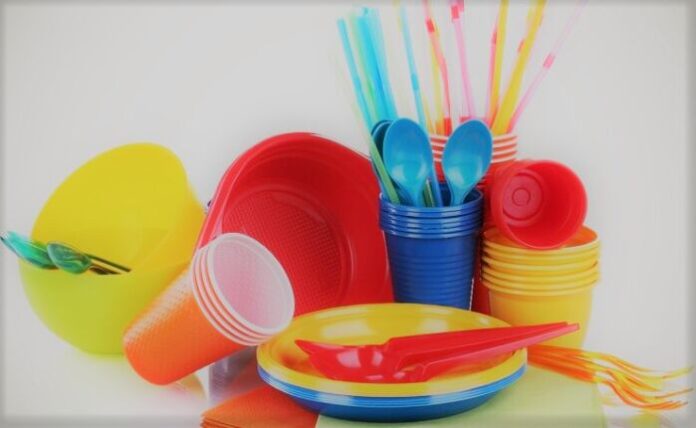
Europe says stop to the use of disposable plastic. The European Parliament approved a package of measures that will ban disposable items by 2021. The new directive become definitive in 2021 and prohibit Member States to use a series of disposable plastic items such as disposable plastic cutlery (forks, knives, spoons and chopsticks) and disposable plastic plates, plastic straws, cotton sticks made of plastic, plastic sticks for balloons, oxy-degradable plastics and food containers and polystyrene cups.
The legislative text, approved in Strasbourg with 560 yes, 35 no and 28 abstentions, also sets some goals. In fact, by 2029, Member States will have to collect 90% of plastic bottles separately through separate waste collection. The legislation also provides that by 2025 plastic bottles must contain at least 25% of recycled content, to go to 30% by 2030. In the adopted text it is proposed that the prohibition of the use, starting from 2021, of products for which alternatives – in addition to cutlery, plates, cotton buds, straws, drink mixers and balloon rods – are also extended to oxodegradable plastic products and containers for take-away food in expanded polystyrene.
For disposable products for which, instead, there are no alternatives, Member States will have to develop national plans, with detailed measures, to significantly reduce their use, to be transmitted to the Commission within two years of the directive coming into force. The reform, which the association of plastic producers wants to apply uniformly in all member countries, is expected to reduce the costs of marine pollution by 22 billion euros between now and 2030.
The legislative text requires national governments to impose a reduction in the use of plastic objects. According to the European Commission, around 80% of the waste that pollutes the seas is made up of plastic and the products covered by the directive account for about 70% of all marine litter. The plastic decomposes very slowly, therefore it accumulates on the beaches, in the seas and in the whole world. Residues are ingested by sea animals, often causing death, but much more often by entering the human food chain through the food we eat. The aim of the directive is therefore to reduce pollution by plastic or otherwise find alternatives for the reuse of materials.



































